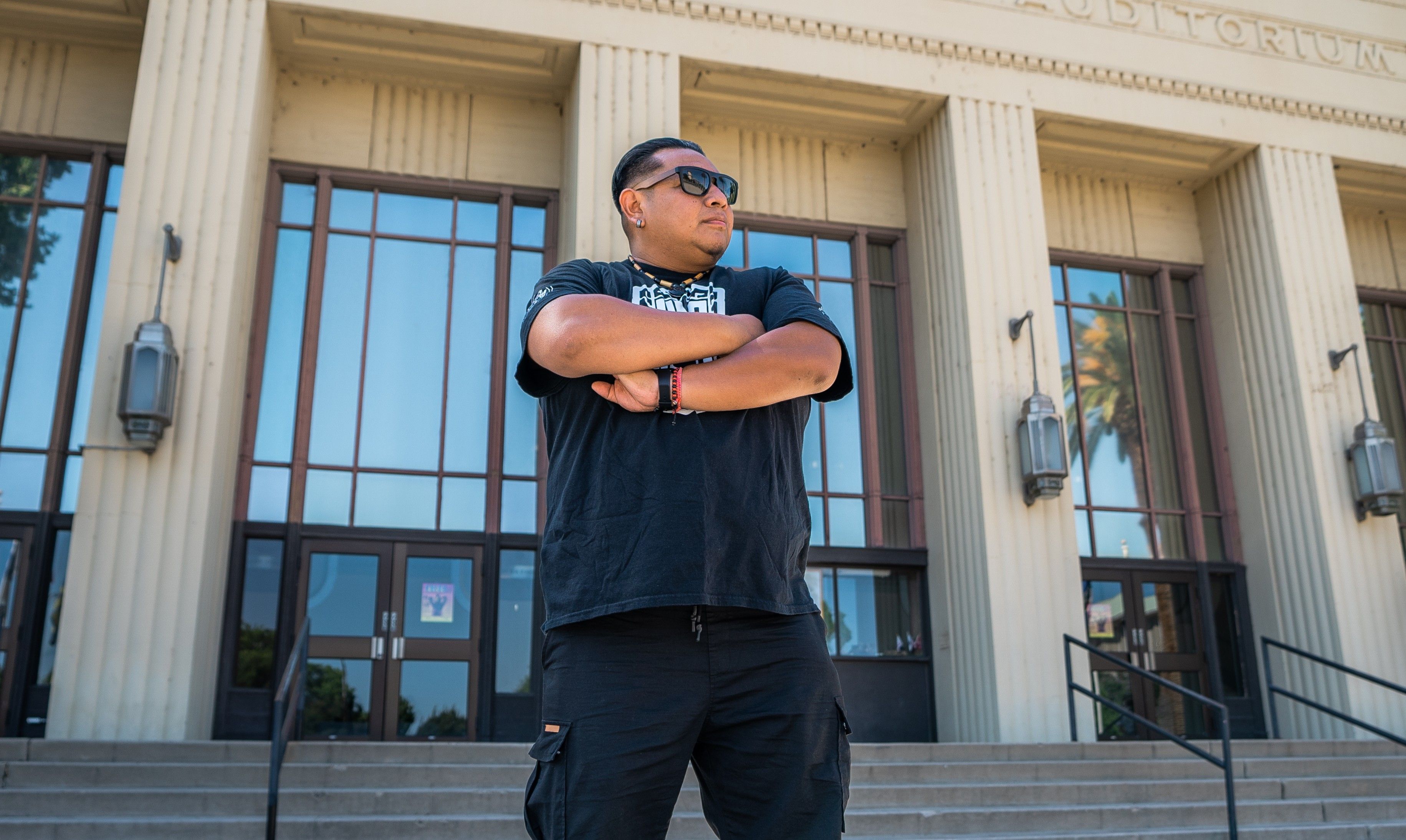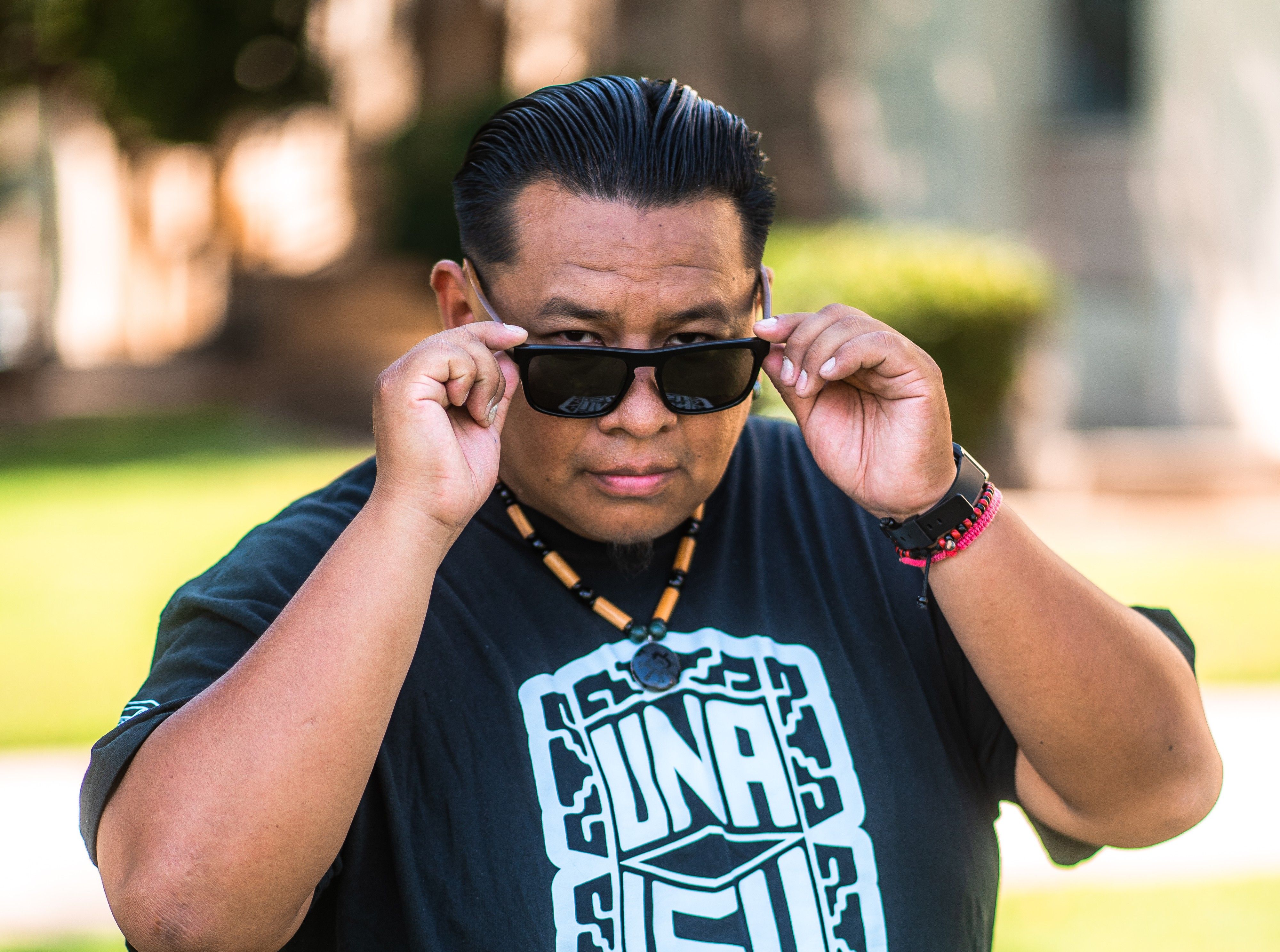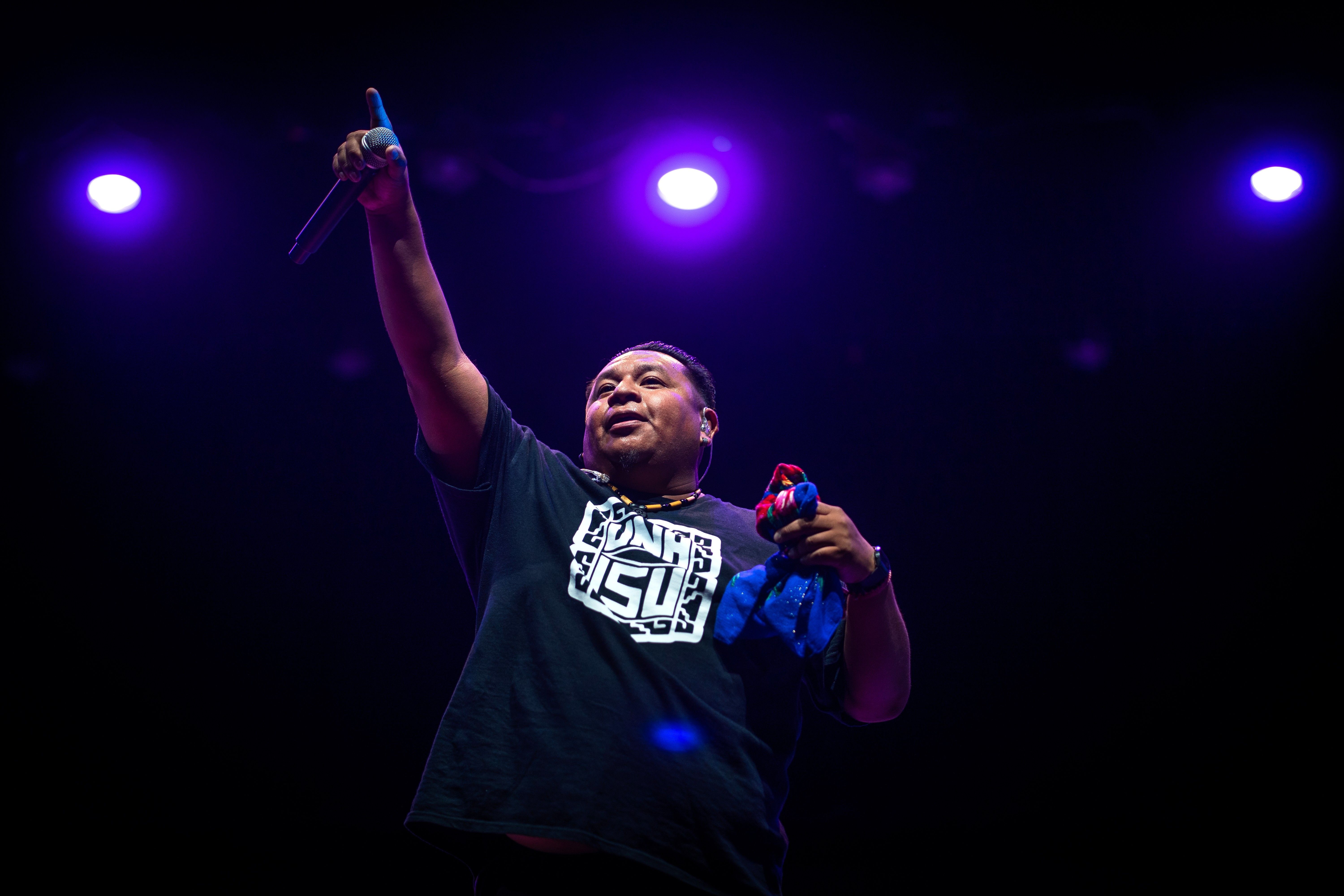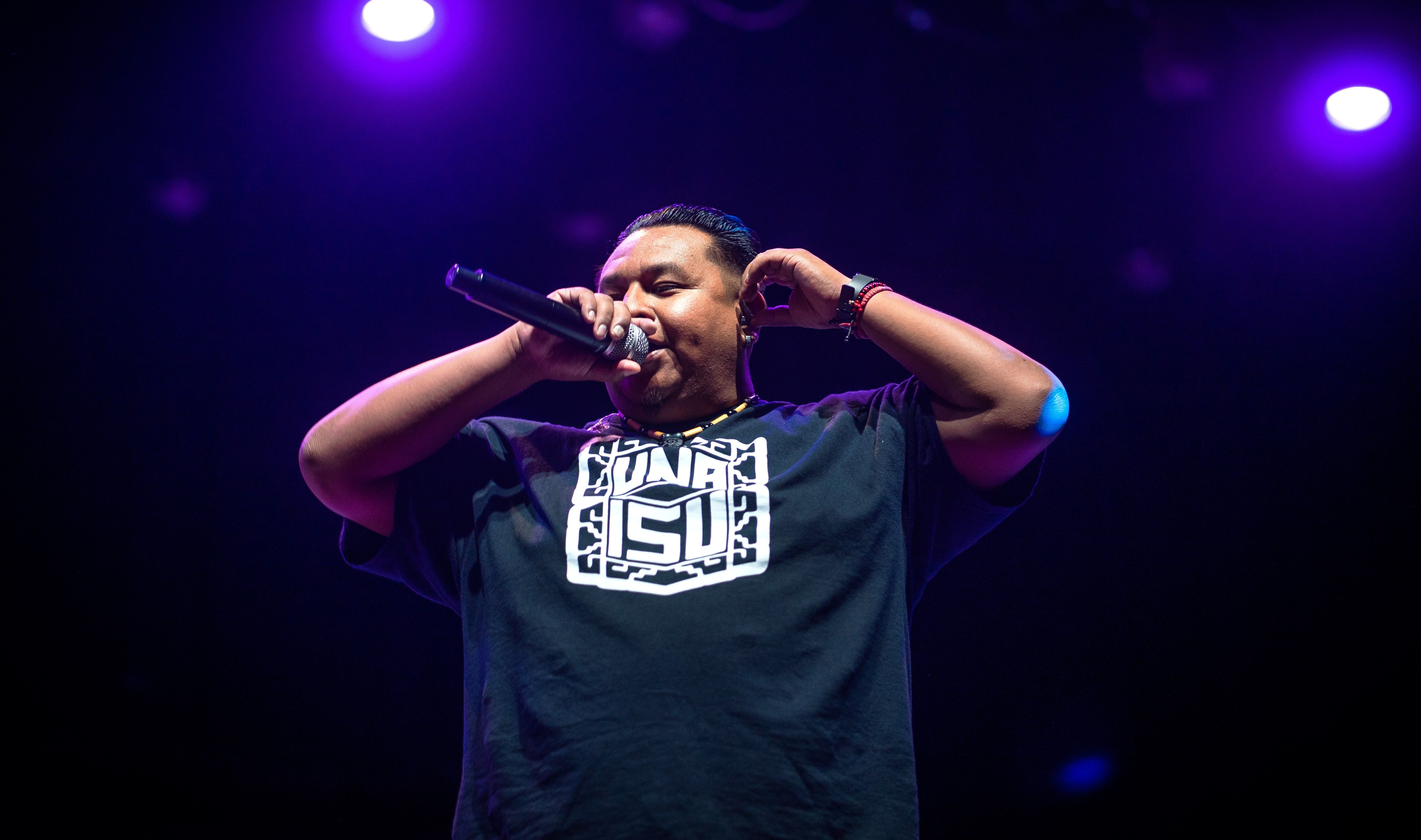Miguel Villegas Ventura, Mixtec Rapper and Cultural Advocate
Reclaiming Identity and Power Through Trilingual Rap and Community Work
Miguel Villegas Ventura is a trilingual rapper, cultural educator, and language advocate originally San Miguel Cuevas (Nùù Yukù), Juxtlahuaca located in the Mixteca Baja of Oaxaca, Mexico. Nùù Yukù is an indigenous Mixtec community with strong migration to the United States. He is also the founder of the music project Una Isu—short for Ocho Venado, a name referencing the legendary Mixtec leader "Eight Deer Jaguar Claw" from pre-Columbian codices.
Miguel’s journey began in Oaxaca, where he grew up speaking Mixteco as his first language. He migrated to the United States as a child and experienced firsthand the challenges of cultural discrimination and linguistic erasure—both from dominant American culture and from within Mexican communities in California. His early experiences in Fresno public schools, where he struggled with language barriers and internalized stigma against his Indigenous identity, deeply informed his later artistic and educational work.
In 2010, he co-founded a youth collective called Los Autónomos, comprised of young Oaxaqueños seeking to create space for cultural belonging and community. In this context, Miguel launched his rap project, which later evolved into Una Isu, blending English, Spanish, and Mixteco in a new form of socially conscious, identity-affirming music.
His early song Mixteco es un lenguaje (Mixtec is a language) was a public declaration of pride and defiance, affirming that Mixteco is not a dialect but a full and complex language. The song gained wide attention, reaching audiences in Oaxaca, on regional radio, and even internationally. Miguel identifies closely with conscious rap and has performed across California, Oregon, and Mexico. His lyrics address colonialism, racism, language loss, and identity, and often aim to reshape public perceptions of what rap—and Indigenous identity—can be.
Linking his musical practice to his community’s oral traditions, Miguel recognizes the importance of “xa'vì,” or florid speech. This ceremonial speaking style in his culture uses metaphors, natural imagery, and poetic structures to give thanks, request a hand in marriage, or address communal assemblies. Miguel sees this form of oratory as deeply parallel to rap, which also relies on metaphor, rhythm, and storytelling.
In addition to his musical work, Miguel has led a wide range of efforts in education, advocacy, and public health. He has served as a community organizer, interpreter, and cultural project coordinator with the Centro Binacional para el Desarrollo Indígena Oaxaqueño (CBDIO), and helped develop and teach a Mixteco writing workshop in Fresno and Madera. His leadership was also recognized at the state level when he was selected to serve as the Binational Youth Coordinator for the Frente Indígena de Organizaciones Binacionales (FIOB) in California. Currently, he serves as the Community Services Coordinator for Ventura County Behavioral Health’s Logrando Bienestar Program, where he supports mental health outreach in multilingual Indigenous communities.
Through music, language, and service, Miguel Villegas Ventura has built a career rooted in cultural survival and collective empowerment. His work reflects a deep belief that Indigenous identity is not something to overcome—it is something to protect, perform, and carry forward.





